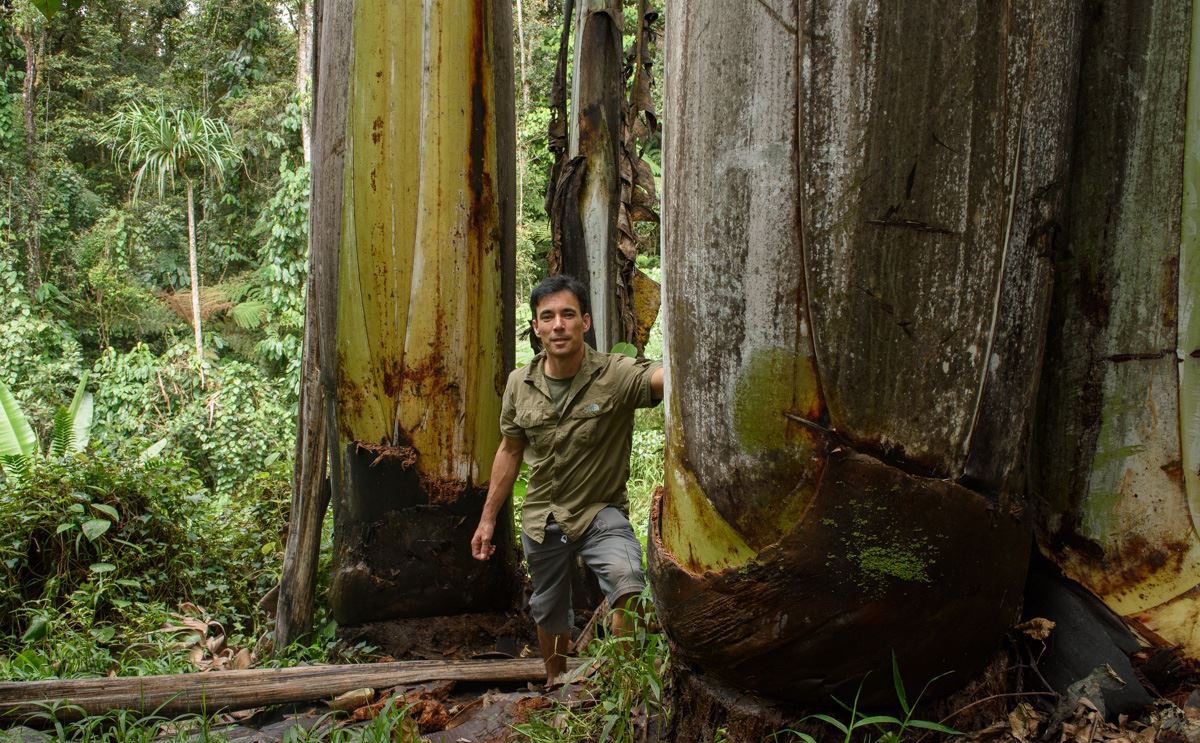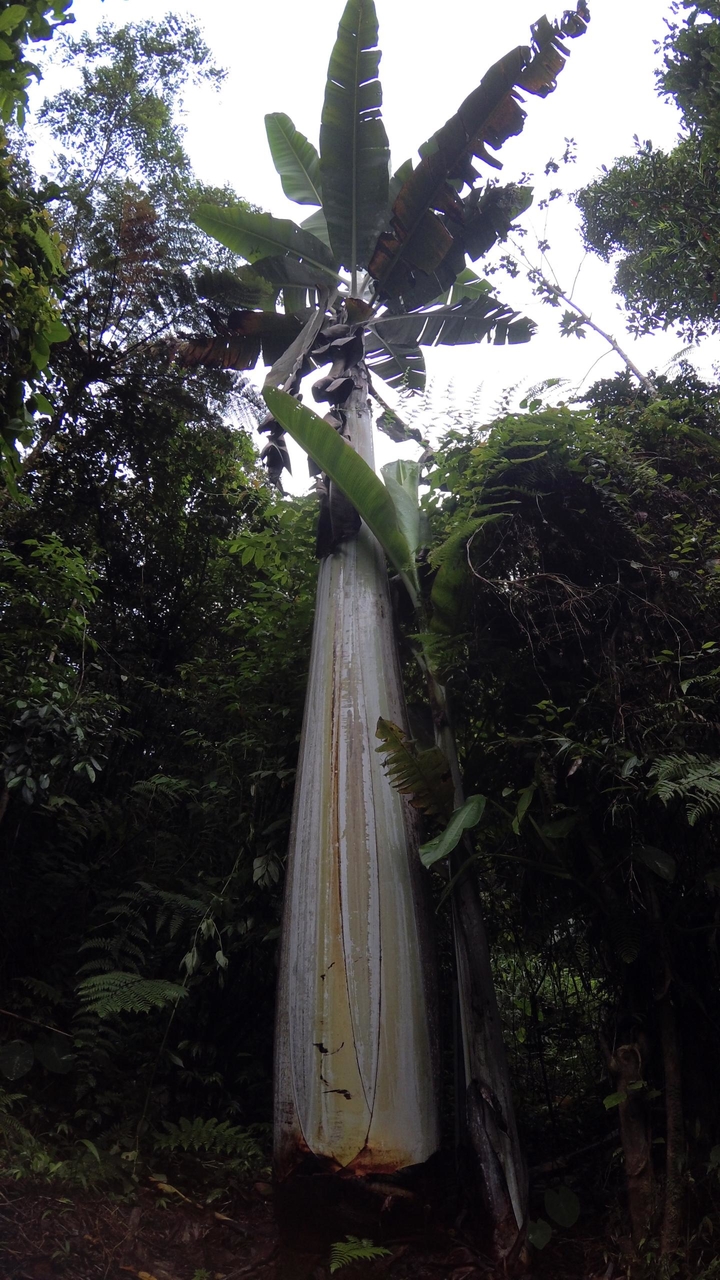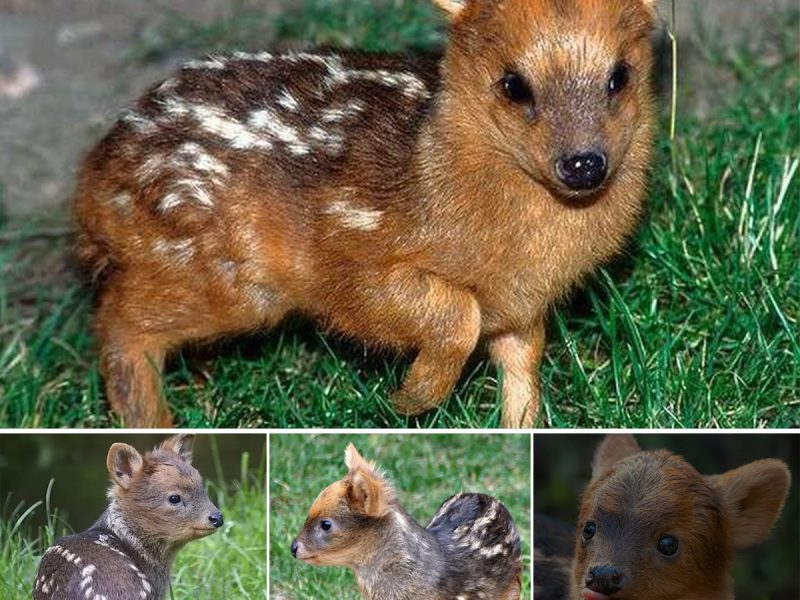The plant species Musa ingens holds the title for being the largest member of the Musaceae family. It is native to the tropical montane rainforests of New Guinea and Indonesia, thriving at elevations between approximately 1300 and 2000 meters.

The pseudostem of Musa ingens has a slight swelling at the base and is covered by a whitish waxy layer. Its leaves can grow up to 5 meters in length, while the trunk reaches a minimum height of 15 meters and a diameter of about one meter at the base. In total, the plant can surpass a height of 20 meters, making it the unrivaled champion as the largest and tallest banana plant, as well as the largest non-woody plant in the world.

It truly is a marvel of nature to witness an herbaceous plant, growing from an underground rhizome and producing densely packed leaf bases, attain a size larger than many woody trees.

The impressive inflorescence of Musa ingens can bear more than 300 oblong fruits, measuring up to 18 centimeters in length. These fruits contain blackish-brown seeds and yellowish pulp that is not only edible but also deliciously sweet. Unfortunately, only a few seeds have been successfully cultivated in the past, as most perished due to mishandling or premature picking.

Due to its preference for highland habitats, Musa ingens does not thrive in tropical lowland climates. It can only flourish at specific altitudes where temperatures are cooler or in oceanic, warm temperate climates such as Portugal, northern New Zealand, coastal California, coastal southern Brazil, or on Atlantic islands like Madeira or the Canary Islands.

Successful germination is most likely to occur under conditions resembling its natural habitat—damp environments with warm days and cool nights. These plants cannot grow in deep shade and are considered opportunistic, with seeds that may remain dormant in the soil for many years.

